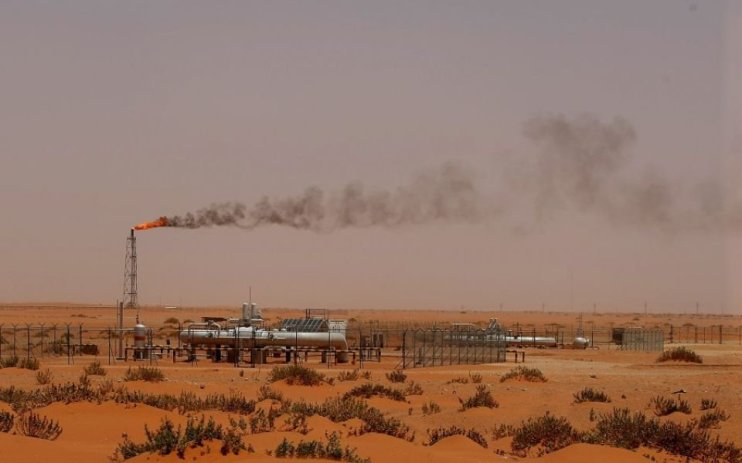Aramco revels in record profits powered by booming oil prices

Lucrative oil trading continues to power record results at global energy giants, with state-owned Saudi Aramco (Aramco) unveiling a massive 82 per cent spike in profits over the first three months of the year.
Aramco, which frequently alternates with Apple as the world’s most valuable company, revealed a net income of $39.5bn for the quarter up to March 31 this year.
Its results were boosted by strong oil prices, which soared to 14-year highs in March, peaking at $139 per barrel following Russia’s invasion of Ukraine and persistent concerns over supply shortages.
The energy giant stated that its earnings were the highest in any three-month window since it went public, powered not just by crude prices, but also volumes sold and improved downstream margins.
Aramco also declared a dividend of $18.8bn to be paid in the second quarter and approved the distribution of one bonus share for every 10 shares held in the company.
The energy giant’s results slightly above expectations, with Aramco previously expected to post a net income of $38.5bn – according to a median estimate from 12 analysts provided by the company.
Its eye-watering results follow both UK majors BP and Shell reporting their highest earnings in at least a decade, on the back of spiralling commodity prices.
Despite hefty write-downs from exiting Russia, BP enjoyed strong underlying profits of $6.2bn while Shell posted profits of $9.13bn.
Both energy firms have also raised their buybacks, with BP announcing dividend pay-outs of $1.5bn per quarter while Shell has raised its own scheme to $8.5bn.
Shares in the company have risen 37 per cent since the start of the year, outperforming the Saudi index which is up nearly 14 per cent.
Both major benchmarks are up four per cent heading into this week, amid early signs China could begin lifting pandemic restrictions in Shanghai.
There is also the prospect of an EU ban on Russian oil imports, with the bloc pushing for a sixth package of sanctions following the invasion of Ukraine.
Hungary remains the main obstacle for a planned phase-out of Russian oil supplies, with the country pushing for piped supplies to be exempt from a ban.